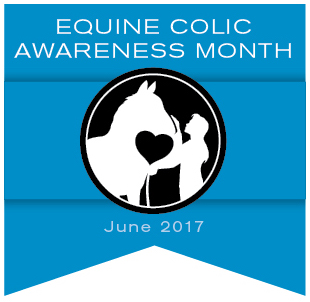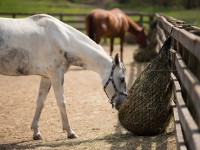
Crusade Against Equine Colic’s mission is to save as many horses as possible from deadly and debilitating bouts of equine colic through educating you – the horse men and women who care for them. This four-part series walks you through the keys to understanding and reducing the risks for GI health related colics in horses. Know your horses’ risk for colic Evaluate your horse for early warning signs Know your horse [ Read More ]
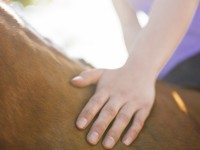
Crusade Against Equine Colic’s mission is to save as many horses as possible from deadly and debilitating bouts of equine colic through educating you – the horse men and women who care for them. This four-part series walks you through the keys to understanding and reducing the risks for GI health related colics in horses. Know your horses’ risk for colic Evaluate your horse for early warning signs Know your horse [ Read More ]
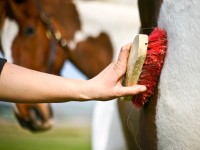
Crusade Against Equine Colic’s mission is to save as many horses as possible from deadly and debilitating bouts of equine colic through educating you – the horse men and women who care for them. This four-part series walks you through the keys to understanding and reducing the risks for GI health related colics in horses. Know your horses’ risk for colic Evaluate your horse for early warning signs Know your horse [ Read More ]
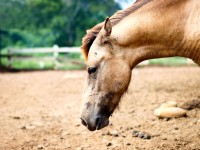
Crusade Against Equine Colic’s mission is to save as many horses as possible from deadly and debilitating bouts of equine colic through educating you – the horse men and women who care for them. This four-part series walks you through the keys to understanding and reducing the risks for GI health related colics in horses. Know your horses’ risk for colic Evaluate your horse for early warning signs Know your horse [ Read More ]
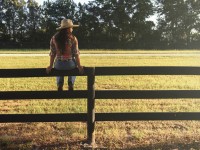
You come out to the barn to find your normally playful, inquisitive horse standing with his head in the corner, ignoring you. Or, perhaps your horse is pawing and turning around to look at his belly or, worse, thrashing and rolling around in his box. You’re 99 percent sure it’s colic (that is, pain in the horse’s abdomen), so you call the vet. But now what? First, Make Your Horse Comfortable Unfortunately, [ Read More ]
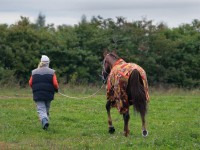
The Crusade Against Equine Colic in Review I was just 9 years old the first time I encountered colic. The previous summer, my mother had purchased an off-track-thoroughbred we named Gandalf, the first horse she’d owned since her college days and the first to become part of our family. Despite having suffered neglect and illness before coming to us, he was a kind, gentle creature content to accept the lavish [ Read More ]
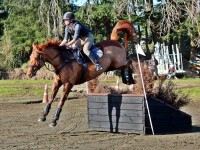
Submitted by Jody Paddy Read the full story on her blog at https://kazzscolicstory.wordpress.com/ My name is Jody and my Irish Sport Horse mare Kazz had and survived colic surgery. I’ll start by giving you some background so you know who I am, and more importantly who Kazz is … My very lovely mother bred a few horses in her time – she had this idea to breed one I would love [ Read More ]
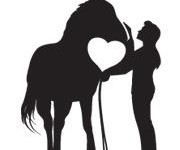
18yo TB/WB gelding lost to colic Submitted by Shannon In the early hours of Thursday morning, November 13th I lost my lovely horse, Jay, to colic. He had colic surgery eight weeks previously and had 17 feet of intestines removed. Everything was the same in his routine back in September, he was living out at night and came in for a few hours in the daytime. He survived the surgery, [ Read More ]
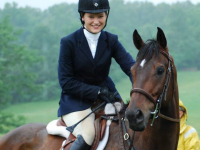
Today, I am an advocate for digestive health in horses because I know how vital it is to performance and overall happiness, in addition to physical wellness. But it wasn’t until the past year or so that I really started to take my horse’s gut health seriously. When My Hard-Keeping Horse Wouldn’t Gain Weight I purchased my young horse off the track, and from the very beginning I had trouble [ Read More ]
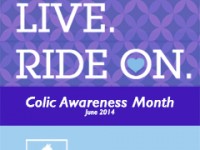
Part 4 of 4 in the 2014 Equine Colic Awareness Month Series While colic in horses is often unavoidable, many colics with unknown causes may be related to poor digestive health, and thus could have been prevented. Scientific research and experience both correlate several common management practices to poor gut health as well as increased colic risk. As care givers and decision makers for our horses, the most important thing [ Read More ]















